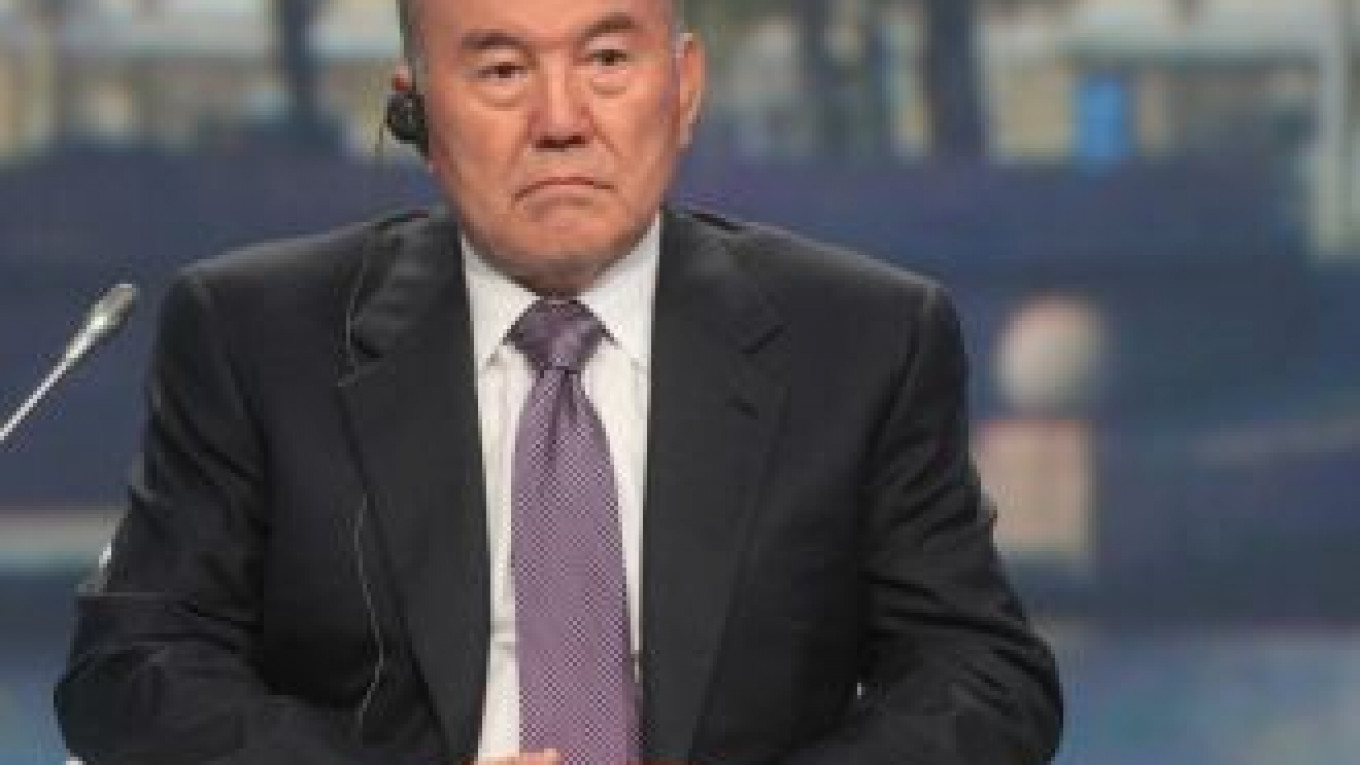ASTANA, Kazakhstan — Kazakh President Nursultan Nazarbayev said he believed a "terrorist act" caused the deaths of 14 border guards and a civilian at a border post on the frontier with China.
A senior border guard official said Thursday that the charred bodies of at least 12 Kazakh border guards and a local gamekeeper had been discovered at a torched post in southeastern Kazakhstan. The border guard service said Friday that two more border guards had been found dead at the post.
"I consider this a terrorist act," Nazarbayev said during a meeting with the heads of Kazakh security bodies.
He did not elaborate on who he thought might be responsible, or why he said it was a terrorist act.
"A soldiers' barracks and an officers' house were burned down; the dead bodies were recovered when the debris was cleared. When such incidents occur in peaceful times, this demands the most thorough investigation," Nazarbayev said.
Fifteen guards were stationed at the post. The fate of the one missing serviceman is unknown.
"Central and local security bodies are doing whatever is necessary to clarify all the circumstances of this case and detain the suspected criminals," Nazarbayev said.
There has been no history of violence at the border since Kazakhstan gained independence in 1991, and the last time there were any major clashes on the frontier was in August 1969, when there was a brief but fierce clash between Soviet and Chinese troops.
The border post was reinforced during the summer months to guard mainly against the illegal gathering of rare medicinal plants that grow in the region.
Nazarbayev is expected to visit China this week to take part in the summit of the Shanghai Cooperation Organization, a regional security body that also includes Russia and Central Asian neighbors Kyrgyzstan, Tajikistan and Uzbekistan.
A Message from The Moscow Times:
Dear readers,
We are facing unprecedented challenges. Russia's Prosecutor General's Office has designated The Moscow Times as an "undesirable" organization, criminalizing our work and putting our staff at risk of prosecution. This follows our earlier unjust labeling as a "foreign agent."
These actions are direct attempts to silence independent journalism in Russia. The authorities claim our work "discredits the decisions of the Russian leadership." We see things differently: we strive to provide accurate, unbiased reporting on Russia.
We, the journalists of The Moscow Times, refuse to be silenced. But to continue our work, we need your help.
Your support, no matter how small, makes a world of difference. If you can, please support us monthly starting from just $2. It's quick to set up, and every contribution makes a significant impact.
By supporting The Moscow Times, you're defending open, independent journalism in the face of repression. Thank you for standing with us.
Remind me later.






